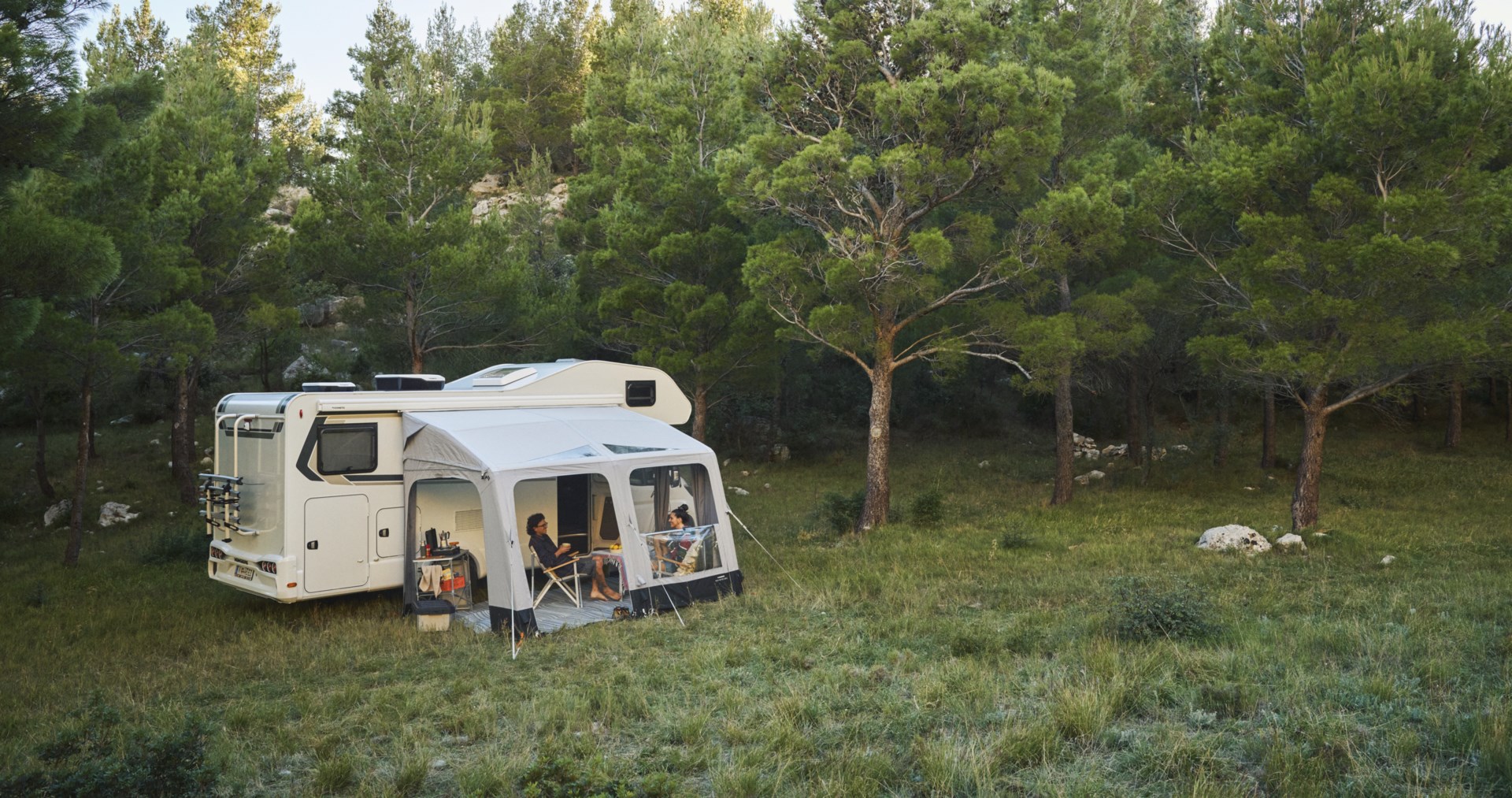Caravanning & Motorhome life
Experience comfort and convenience as boundless as the open road. From reliable mobile power systems and toilets to refrigerators, kitchens, awnings, and comfortable camping furniture—equip your motorhome or caravan with all the essentials for life on the road.

Essential Camper Equipment
Gear For Mobile Living
Shop Air Conditioners
Awnings
Toilets & Sanitation
What Does the Term “RV” Stand For?
RV stands for “recreational vehicle” and refers to a caravan, motorhome or campervan. Traveling with an RV means exploring and living in a specially designed vehicle that allows individuals, families, or friends to visit various destinations while enjoying home-like amenities such as sleeping quarters, kitchens, and bathrooms. With an RV, you can embark on both short and long journeys, enjoying a mobile lifestyle that combines relaxation, new adventures, and the beauty of nature.
What Are the Differences Between Class A, B, C, and Trailer RVs?
Choosing the right RV for your personal travel style can be tricky, so understanding the different classifications is essential. A Class A motorhome is the largest, resembling a “home on wheels,” offering the most space and amenities. Class B vehicles, often called campers, are the smallest motorhome category but still provide everything needed for an independent journey. Class C motorhomes feature a sleeping area above the cab and are often (though not always) similar in size to Class A and B vehicles. Towable RVs, such as travel trailers, caravans, and pop-up campers, are not classified into the A, B, or C categories.
Must-Have Essentials for RV Travelers
Living in an carvan or motorhome offers unmatched flexibility and the freedom to explore, but before hitting the road, you’ll need a few key accessories. A powerful Dometic Air Conditioner ensures comfort even on the hottest nights. Keep gourmet meals fresh in a reliable RV refrigerator and cook them on a durable stove. Watch the sunset over dinner—or enjoy shade during sunny days—by extending your outdoor living space with an inflatable awning. Lastly, don’t overlook sanitation products: a camping toilet that feels just like home is a must-have when traveling and camping.
Different Types of RV Camping
Traveling with a carvan or motorhome can provide a variety of camping experiences, from off-grid adventures to luxurious campsites with full hookups. RV parks and some campgrounds cater specifically to caravan owners, often offering amenities like dump stations, electricity, and water connections. Boondocking, also known as dry camping, involves camping in remote areas without access to utilities. This type of camping often provides solitude and a closer connection to nature but requires independent energy solutions like solar panels and sufficient battery storage.